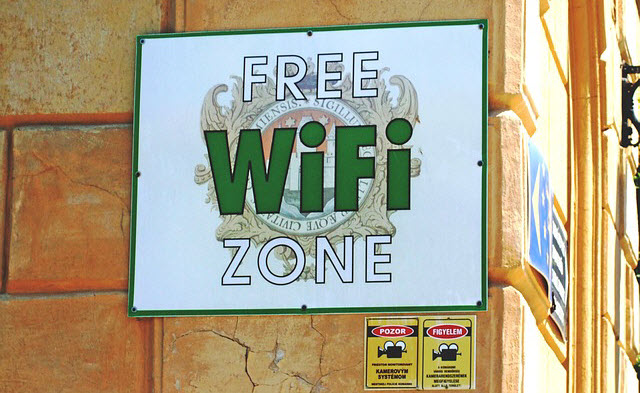6 deadly dangers of using unsecured Wi-Fi

They say, good things come for free, but not all of them. This post quickly takes you through the dangers of using unsecured Wi-Fi and some safety tips should you access such networks.
From coffee shops to public libraries, and airports to restaurants, most public places now offer Wi-Fi for free. And who does not like the word ‘Free’? We all love it and wish it was all over the place, don’t we? And when this very word is attached to Internet, people just can’t help going gaga over it. And in this frenzy of excitement, they knowingly or unknowingly expose themselves to cyber crooks.
When you are on an unsecured Wi-Fi, an attacker can capture whatever information you are giving away online, including your login information, banking details, etc.
The biggest dangers of unsecured Wi-Fi networks
Using an unsecured WiFi connection, an attacker can:
1. Capture your account’s user ID and passwords.
2. Log the data of online traffic accessed on your phone or computer. In this way, they can maintain a data of the websites you mostly visit, and plan attack from these websites.
3. Gain access to your computer, its network and data.
4. Launch a spam or malware attack on your device.
5. Hijack the account you are logged into, and use it for unscrupulous purpose.
6. Redirect you to a phishing webpage where you might give away your personal information.
Safety tips for Wi-Fi Hotspots
- While accessing free, unsecured Wi-Fi hotspots, avoid accessing sites where you have to login or give away your financial information, such as social sites, email accounts, online bank accounts, online stores, etc.
- If you should login, then prefer websites with an ‘https’ address. However, be warned that although these web sites may be secure, they are not foolproof.
- If you have to carry out an urgent online banking transaction, always prefer a secure Wi-Fi network even if you have to pay for it.
- Disable file sharing on your computer. This minimizes the risk of an attacker to barge into the personal data on your machine.
- Create strong passwords – avoid using dictionary words, your name, birth date or pet’s name. Use uppercase letters, special characters, meaningless words or phrases. This post will tell you how you can create strong passwords using a few simple tips.
- Use different passwords for every online account.
- Avoid checking ‘Remember me’, ‘Remember password’, ’Keep me logged in’ boxes.
- Always manually select Wi-Fi networks. Do not let your computer or smartphone automatically connect to them.
- Turn OFF Wi-Fi when not in use and always remember to log out.
- Ensure that your computer’s antivirus or phone’s mobile security app is up-to-date, and so are its operating system, software, and Internet browsers.
“The chances of you being hacked far exceeds the chances of your home being burglarized. This is a big business”, says Kevin Clark, Deputy First Assistant Prosecutor at Monmouth County Prosecutor’s Office. This statement could not be any truer. So, remember that free, unsecured Wi-Fi hotspots are good as long as they are used only for browsing websites. Stay safe!
Data source:
www.usatoday.com
www.att.com
No Comments, Be The First!